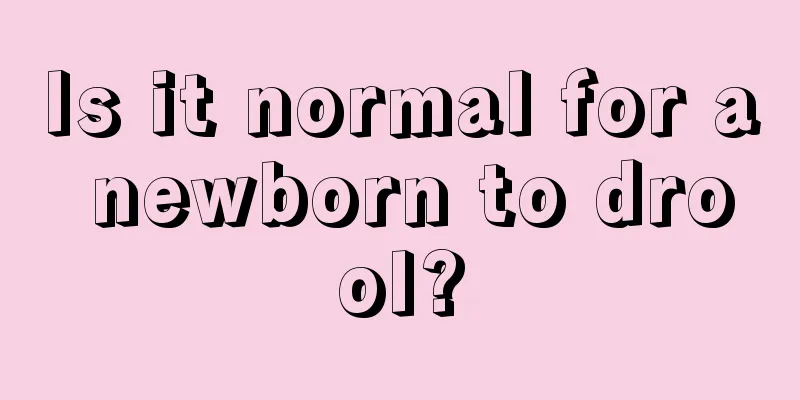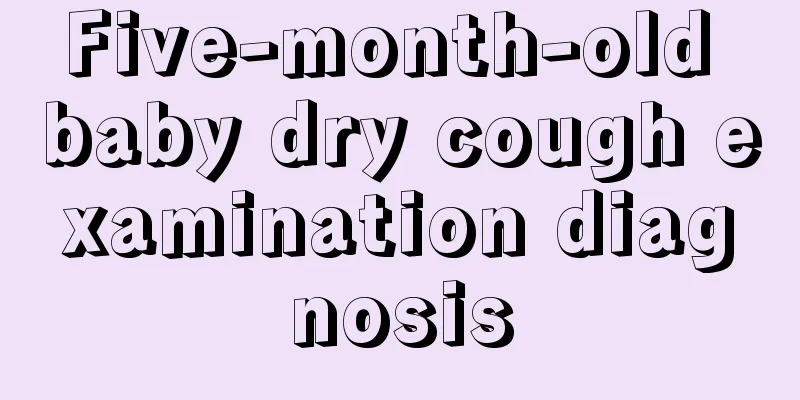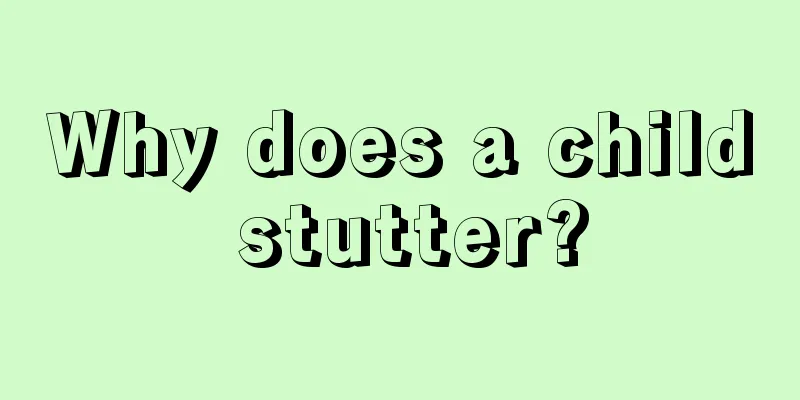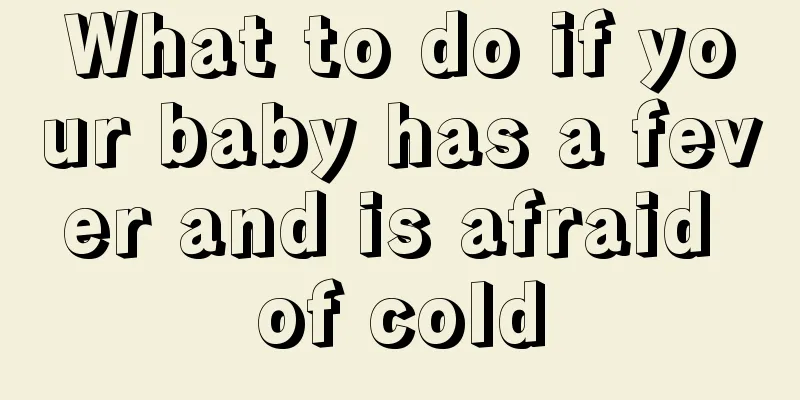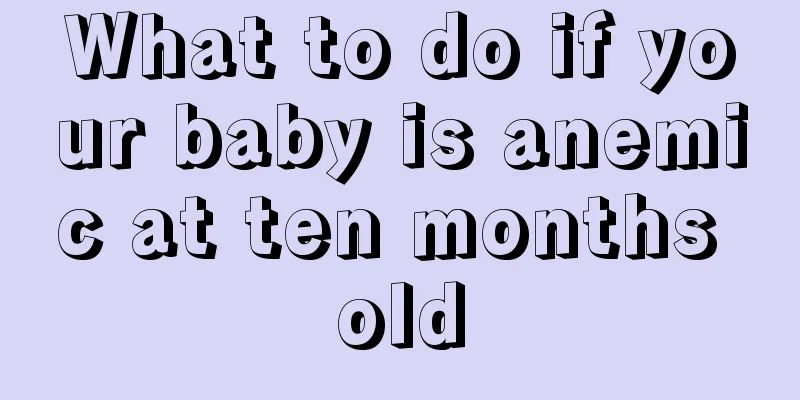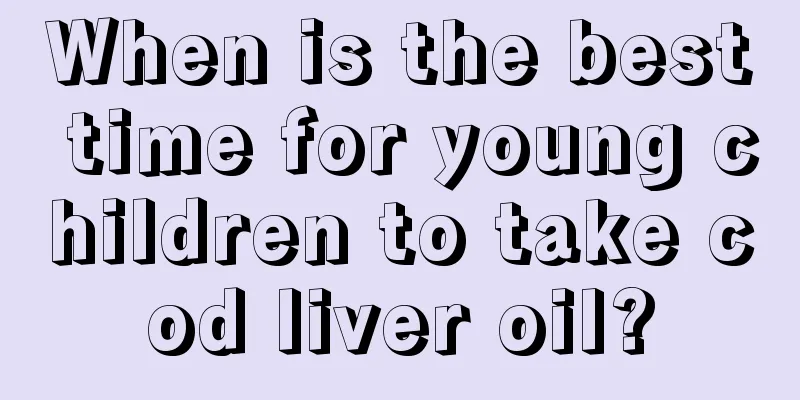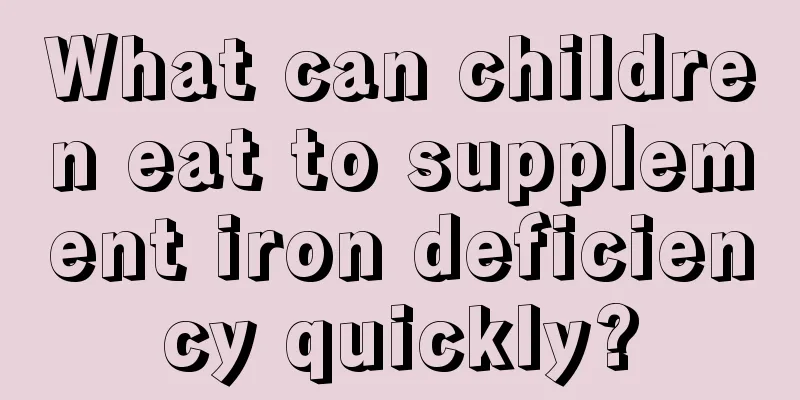What to do if your baby always has phlegm in his throat

|
What should I do if my baby always has phlegm in his throat? The baby's immunity is weak, and many functions of the body have not yet fully developed. If they catch a cold accidentally, they are prone to diseases such as tracheitis and bronchitis. There is phlegm in the baby's throat, but they will not spit it out like adults. It can only get stuck in the throat or be discharged through the feces. In this way, a large number of germs accumulate together, which is very dangerous. What should I do if my baby has phlegm in his throat? Patting the back - an emergency method when you can't cough up phlegm When the child is coughing, let the child lie on his side or hold him in the position where he lies on his side. The parent slightly bends the five fingers of one hand, makes a fist, and gently pats the child's chest, sides and back. Pat your left side and lie on your left side, alternating between the two sides. The force of the slapping should not be too great, and it should be done from top to bottom and from outside to inside, in sequence. Pat each side for at least 3-5 minutes, 2-3 times a day. The back-patting method can not only loosen the phlegm in the child's lungs and bronchi, drain it into the trachea and discharge it, but also promote blood circulation in the heart and lungs, which is beneficial to the absorption of bronchial inflammation and enables early recovery from the disease. Drinking water - keep your throat moist For children who cough, the insensible water loss through the respiratory tract will be very high, and the airway will be relatively dehydrated, which can aggravate respiratory inflammation and the viscosity of secretions, making them difficult to cough out. Let the child drink more water, especially cold boiled water at about 23°C, which has a good moisturizing and physical therapeutic effect on the throat. Drinking more cold boiled water can dilute the viscous secretions, making them easier to cough out, which is beneficial for relieving cough and expectoration, and eliminating local inflammation. At the same time, cold boiled water can improve blood circulation, so that waste or toxins produced by the body's metabolism can be quickly excreted from the urine, thereby reducing its irritation to the respiratory tract. Steam therapy - good physical therapy Pour boiling water into a large pot or teacup, hold the child, and let his mouth and nose face the rising steam and inhale and exhale. This can thin the phlegm and facilitate coughing up, and can also reduce congestion and edema of the trachea and bronchial mucosa and reduce coughing. But be careful to avoid burns and accidents. Drug method - the fastest way to resolve phlegm and relieve cough Children should be very cautious when using medications and should not take cough suppressants casually, as this may suppress the cough center and hinder expectoration. For those with less sputum, which is thick and difficult to cough up, expectorants such as ammonium chloride, platycodon, and polygala can be used under the guidance of a doctor; for those with more sputum and mucous membrane that is difficult to cough up, the expectorant drug Mucosolvan can be used, which can make expectoration easier and is currently the most ideal expectorant. Parents can also make rock sugar and snow pears at home and let their children eat the pears and drink the juice, which is also helpful for reducing phlegm and relieving cough. What should I do if my baby always has phlegm in his throat? The baby's body functions are not fully developed yet, and he is prone to major and minor physical conditions. New parents lack experience and don't know how to take care of their children. When your baby has phlegm in his throat, you might as well try the methods mentioned by the editor. If these methods are not effective, you should take your baby to the hospital and ask a doctor for help to solve the problem. |
<<: What should I do if my baby has no hair on the top of his head?
>>: What should I do if my 10-month-old baby has a fever of 38 degrees?
Recommend
What are the symptoms of acne in children?
Chickenpox is a very common disease in children a...
The difference between exanthema and rubella
Children are more likely to develop roseola or ru...
Why do sweaty palms occur?
I don’t know if you have ever had this experience...
Reasons why babies wake up in the middle of the night
When babies wake up in the middle of the night, w...
What are the developmental indicators of a five and a half month old baby?
After the baby is born, the development standards...
What symptoms of vitamin deficiency in children should we pay attention to?
Vitamins are a type of nutrients necessary to mai...
What should I do if my child can’t stop nose bleeding?
When a nosebleed occurs, many people will tilt th...
What to do if children have exposed tooth roots
The second tooth replacement experience in childh...
How to check for developmental disabilities in children?
When a child's body has any abnormality, it w...
Reasons why babies sleep restlessly at night
Many parents will find that their newborn babies ...
What is the cause of the baby's diarrhea with blood?
When the baby is sick, the mother will feel very ...
Symptoms of otitis media in six-month-old babies
If a six-month-old baby gets otitis media, the ha...
What causes a newborn's loud breathing?
Many newborns have very loud breathing sounds, wh...
What are the symptoms of asphyxiating sternal dysplasia syndrome?
Everyone hopes that their children can live a hea...
Port wine stain on baby's head
Every child is a lovely little angel, born with t...
